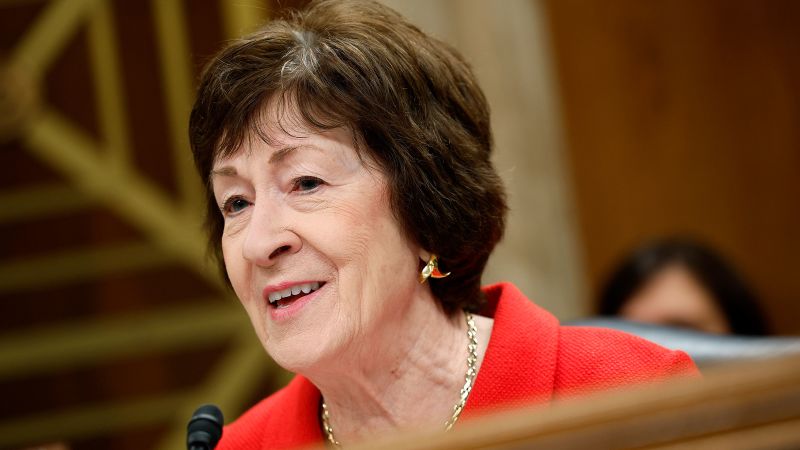The political landscape in Maine is heating up as the Democrats are anxiously eyeing the potential candidacy of Senator Susan Collins, a pivotal figure in New England’s Republican framework. Collins, who has held her Senate seat for an impressive 28 years, has continuously defended her position against a series of formidable Democratic challengers in highly contested elections. Her continued presence in the Senate is crucial for the Democrats as they envision reclaiming a majority in Congress, thus making her decision to run or not in the upcoming election of paramount importance.
At 72 years old, Collins has not yet formally declared her intent to run for a sixth term, which leaves the dynamics of the race uncertain. Meanwhile, prominent Democratic figures such as Governor Janet Mills and Representative Jared Golden are thoughtfully considering their options, as their candidacies would heavily depend on whether Collins decides to run. In a recent interview with CNN, Collins hinted at her inclination to seek re-election, stating, “It’s certainly my inclination to run and I’m preparing to do so,” while maintaining that it was too early to make a formal announcement.
Collins’ strategic role as a moderate chairing the Senate Appropriations Committee places her in a unique position within the Republican Party, especially in a predominantly blue state like Maine. However, if she were to forgo another campaign, it could create an opening for Democrats to secure the seat, potentially turning it into a fierce contest in the 2024 midterms. National Republicans are confident that Collins will be a candidate on the ballot come November, yet the quandary remains for Democrats: can they secure a strong challenger against such a seasoned politician?
Democrats are facing challenges in rallying a top-tier candidate against Collins. Senate Minority Leader Chuck Schumer and his team have yet to confirm a Democratic contender that could effectively contest the formidable senator. In optimistic terms, Senator Kirsten Gillibrand expressed hope for a robust candidate, stating, “I’m bullish on Maine,” while acknowledging behind-the-scenes efforts to engage potential candidates.
As discussions intensify, Governor Mills has been approached by Schumer regarding her interest in running, though she has publicly downplayed the idea. Additionally, Representative Golden emerges as a potential challenger, presenting himself as a moderate willing to embrace a broader range of constituents, including those sympathetic to Donald Trump. Nevertheless, Golden’s previous affiliation as a staffer in Collins’ office makes his candidacy appear doubtful, as many colleagues believe he wouldn’t run against someone he considers a mentor.
Collins’ relationship with Trump adds another layer to the unfolding political narrative. Her history of voting against Trump on critical issues, including during his impeachment trials, positions her uniquely among GOP senators. This position could either bolster her appeal to independent voters or alienate the fervent supporter base that remains loyal to Trump. As Collins previously stated, “I always run on my own record, and that’s what I will do this time,” signaling her intention to emphasize her individual achievements rather than partisan politics.
The uncertainty surrounding many candidates, including Golden’s decision regarding a re-run, continues to keep political observers intrigued. Golden’s highly-watched seat remains a target for the Republicans, especially as they eye opportunities to regain control in a narrow partisan climate. With former Governor Paul LePage emerging as a Republican contender for his House seat, the political battlefield grows ever more contoured and competitive.
Despite the shifting political tides, Democrats remain determined to maintain their foothold in the House. Representative Brad Schneider aptly stated the necessity of holding onto every seat, emphasizing that no single member is irreplaceable yet expressing a desire to continue working alongside Golden if circumstances allow. As both parties strategize and prepare for the upcoming elections, the interplay between Collins, the potential Democratic challengers, and the broader implications of Trump’s influence on the electorate could significantly reshape Maine’s political landscape.
In summary, as the 2024 Maine Senate race begins to take shape, all eyes remain on Susan Collins, her challengers, and the larger partisan dynamics at play. The decisions made in the coming months will not only influence the course of the Senate race but could also resonate widely in the national political arena. With candidates evaluating their options and the stakes rising, Maine’s political scene is poised for a contentious and revealing campaign season.



